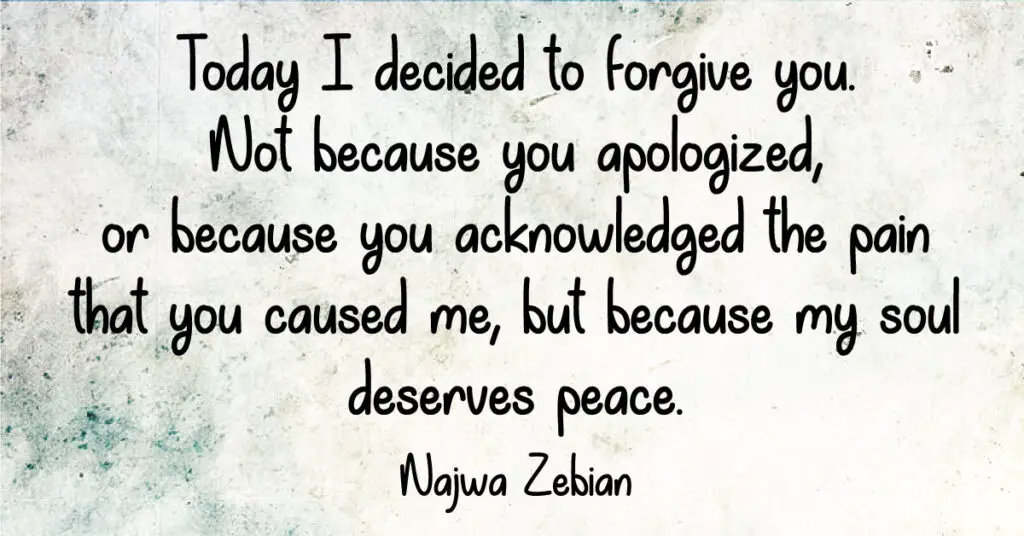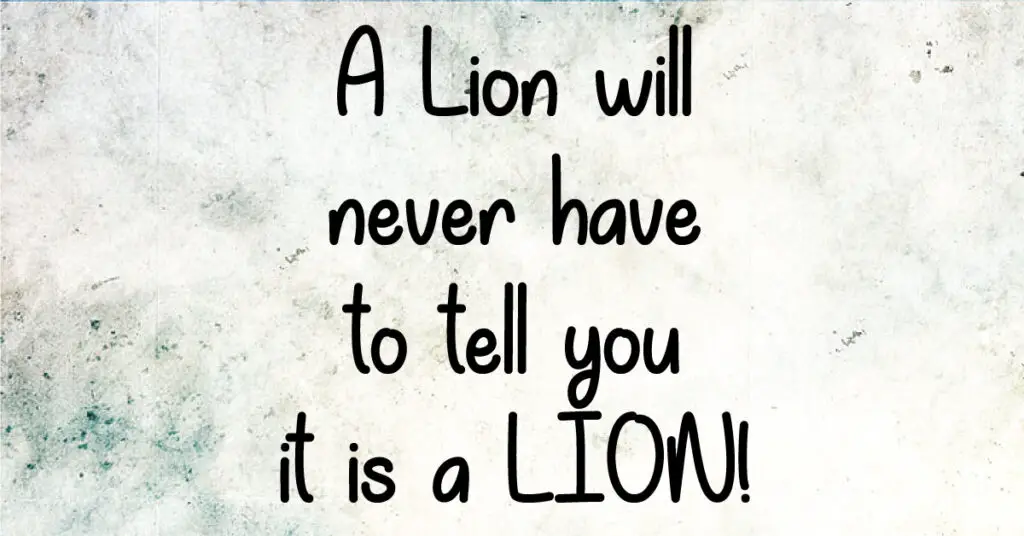A healthy relationship is one based on mutual trust and honesty. Honesty creates a strong bond between two people, enabling them to feel secure in knowing that what they tell each other is true and reliable. When lies are present in a relationship, it can create feelings of insecurity, fear, and doubt. The lack of communication and understanding due to the presence of lies can lead to further emotional damage for both parties involved. A relationship built on lies does not allow for open communication or meaningful connection, resulting in mistrust and leading to the potential break-up of the relationship.
Honest relationships foster love, respect, understanding, and connection which all play an important role in creating a successful partnership. Lies destroy any possibility of real intimacy and can be extremely damaging to one’s emotional health. For a relationship to succeed, it must be based on truth – both parties need to feel safe enough to share honest thoughts and feelings with
Here are 15 ways how to deal with a dishonest relationship and a dishonest partner
Identify the issues that are causing distrust in your relationship
In order to identify the issues that are causing distrust in a dishonest relationship, it is important to have open communication with your partner and be honest about any feelings of unease or insecurity. It is also important to really listen to what your partner has to say and take into account their point of view as well as acknowledge your own role in creating or perpetuating an atmosphere of dishonesty. An open dialogue should be encouraged and both parties should be willing to work together in order to understand the root causes of the distrust and rebuild honesty and trust within the relationship.
Talk to your partner and express how you feel about the dishonesty
It is important to talk to your partner and express how you feel about the dishonesty in your relationship. This can be a difficult conversation, but it is essential in order to identify any underlying issues that may be causing or perpetuating the dishonesty. It is also important for both parties to really listen to each other and take into account the other’s point of view.
Don’t make accusations but rather explain how the lies have been hurting you
When trying to address the dishonesty in your relationship, it is important to avoid making accusations and instead focus on how the lies have been affecting you. Explain your true feelings honestly and clearly, but without resorting to blame or criticism as this could cause further tension between partners. Rather than dwelling on what has already happened, try to focus on rebuilding trust and understanding within the relationship moving forward.
Ask for an honest answer and encourage open communication about any problems in the relationship
It is important to ask for an honest answer from your partner and encourage open communication about any underlying issues in the relationship. This will help you both understand each other better and work towards a resolution together. Try to make sure that your exchange is respectful and that you both have the chance to voice your opinion without judgement or criticism.
Accept responsibility for your part in creating/perpetuating an atmosphere of dishonesty
It is important to take responsibility for your part in any dishonest atmosphere that has been created or perpetuated. Acknowledge your mistakes and make a genuine effort to work on ways of rebuilding trust and understanding. Show that you are willing, to be honest in the future, and are committed to improving communication and resolving any issues together.
Avoid jumping to conclusions and instead focus on understanding the root of the issue
It is important to avoid jumping to conclusions and instead focuses on understanding the root cause of any issues in the relationship. Listen carefully to each other’s point of view, be open-minded and respectful, and try to work together towards an amicable resolution. Ask questions that will help you both understand each other better and address the underlying problems. Communication is key, so take time to really listen and be sure that your conversations are conducted with respect
Agree to be honest with each other, no matter what is going on between you two
It is important to agree to always be honest with each other, no matter the situation. Communication should be open, transparent and honest at all times. Respect each other’s boundaries, and make sure you have a safe place where either of you can express thoughts and feelings without fear. Agreeing to honesty will help build trust in the relationship and allow for better understanding between the two of you.
Spend time apart so that both parties can think clearly before discussing issues
It is important to spend time apart to allow both parties to think clearly before discussing any issues. Stepping away from the situation gives each person an opportunity to process their emotions, formulate thoughts and come up with a plan of action before initiating discussion. Taking time away will help ensure that both parties are in a better frame of mind to engage in productive conversations, allowing for more effective communication and understanding between the two of you.
Practice being trustworthy yourself-set a good example by being truthful and reliable as much as possible
It is important to practice being trustworthy yourself in order to set a good example. Make sure to be truthful and reliable whenever possible, as those are two key pillars of trustworthiness in any relationship. Speak your truth, honor your commitments and stand by your word; all of these will help both of you build a strong foundation of trust in each other.
Learn from past mistakes and make adjustments in order for real change to occur
It is important to take the time to learn from past mistakes in order to make any real changes. Reflect on what happened and why, and identify where things went wrong. Then, make adjustments accordingly so that similar issues will be avoided in the future. Identifying how to improve going forward allows for meaningful progress instead of repeating the same mistakes again and again.
Seek outside help if needed, like counselor or therapist who can provide unbiased advice
t is okay to seek outside help if needed, such as a professional counselor or therapist who can provide unbiased advice and constructive guidance. Talking to someone impartial can help you gain another perspective and gain clarity in times of difficulty. Don’t be afraid to reach out when necessary; it may just be the key to unlocking newfound solutions that were not visible before.
Discuss ways of strengthening honesty between the two of you-like agreeing not to hide anything from one another
Building a foundation of honesty between two people is essential. Establishing trust and open communication will create an environment in which it is safe to express one’s true thoughts and feelings. Mutual respect should be maintained, and an agreement of mutual honesty could be made where neither person would withhold any information from the other.
Look for signs of progress in rebuilding trust, no matter how small
Look for signs of progress in rebuilding trust, no matter how small. It can be something as minor as a shared joke or an appreciation for one another in difficult times – these are all indicators of improving relationships. Celebrate the wins, no matter how insignificant they may seem, and keep pushing onwards toward restoring mutual trust.
Forgive each other for past incidents-but don’t forget what happened either
Forgiving each other for past incidents can be difficult, but it is an important step in rebuilding trust. It’s important not to forget what happened – by understanding the source of pain for each person, both parties can have a better understanding of how to move forward. This isn’t easy, but it is necessary if progress is to be made in restoring trust between two people.
Reaffirm commitment towards honesty and transparency within your relationship with each other without fear of judgment or repercussions
These interactions can be difficult but are important for restoring trust in any relationship. Communicate your feelings clearly and check in with each other regularly – these are key steps in the rebuilding process.
Final thought. Is it worth it?
Every relationship is different and there is no one-size-fits-all answer when it comes to deciding whether it is worth fighting for a dishonest relationship or when to give up. Consider the cost of continuing to invest in the relationship, as well as whether your efforts for reconciliation are being reciprocated.
It can be challenging and difficult to navigate the feelings associated with betrayal, anger, hurt, and other emotions that come with repairing a dishonest relationship. Reaffirming your commitment to honesty and transparency within your relationship is an important step in rebuilding trust. Speak openly, honestly, and without fear of judgment or repercussions. Check-in regularly with each other, communicate your feelings clearly, and find ways to reconnect emotionally – these are all key steps towards understanding each other better.
Ultimately, it’s a decision that only you can make. Consider what you need from the relationship both now and in the future, as well as what you can realistically expect from both yourself and the other person if it were to continue.








